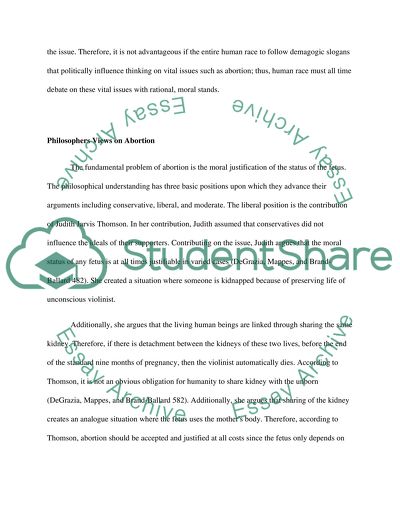Cite this document
(“Philosophers Views on Abortion Case Study Example | Topics and Well Written Essays - 1250 words”, n.d.)
Retrieved from https://studentshare.org/philosophy/1462231-abortion
Retrieved from https://studentshare.org/philosophy/1462231-abortion
(Philosophers Views on Abortion Case Study Example | Topics and Well Written Essays - 1250 Words)
https://studentshare.org/philosophy/1462231-abortion.
https://studentshare.org/philosophy/1462231-abortion.
“Philosophers Views on Abortion Case Study Example | Topics and Well Written Essays - 1250 Words”, n.d. https://studentshare.org/philosophy/1462231-abortion.


